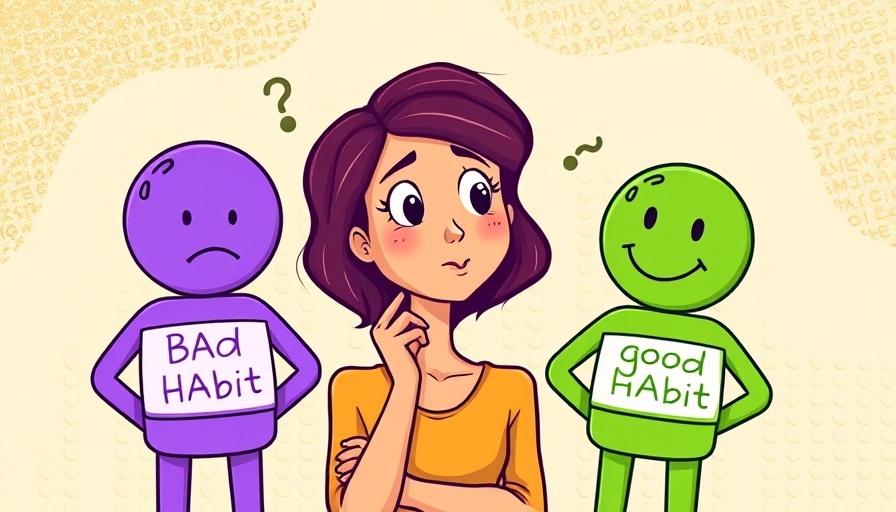
Understanding the Battle Against Bad Habits
We all struggle with habits that seem hard to shake off, whether it's reaching for our phones during dinner or indulging in late-night snacks. What if I told you that instead of battling against these habits, you could shift your perspective and accept them? Acceptance might just be the key to transforming those pesky behaviors into opportunities for growth and self-discovery.
The Breakdown: Why We Struggle With Habits
Many of us are no strangers to the frustration of trying to change undesired habits. Consider this: when I noticed my husband’s frustration at my mindless scrolling during dinner, it opened my eyes to how genuinely disconnected I had become from my surroundings. We often approach bad habits by saying things like, "I shouldn't do that," which only intensifies our desire to engage in those very behaviors.
The Power of Acceptance in Habit Change
Acceptance distinguishes itself as a powerful tool when it comes to dealing with bad habits. According to psychological research, attempts at suppression often lead to an 'extinction burst'—a spike in the unwanted behavior after initial efforts to stop it. Reflecting on my own struggle with social media, I found that resisting my cravings only made them stronger. Instead, learning to accept my habits and understanding their origins made me less anxious and more aware of what I truly needed.
Actionable Steps to Embrace Acceptance
If you're ready to change your relationship with your habits, here are practical steps you can take based on personal experience and insights from various wellness strategies:
- Create Space for Observation: Start by simply noticing when and why you engage in your bad habits. Use mindfulness techniques—like journaling—to become aware of the triggers that lead you to reach for your phone or indulge in snacks. Asking questions like, "What am I really feeling right now?" can offer a deeper understanding of the situations driving your habits.
- Change the Narrative: Revise how you talk to yourself about your habits. Instead of a strict command to avoid them, try a gentler approach like, "Perhaps I can wait for a better time to check my phone." This form of acceptance acknowledges the urge without judgment.
- Focus on Emotions: Understand the emotional needs that lie behind your habits. Are you seeking connection, relaxation, or an escape? Recognizing the root causes of your habits is crucial in changing your approach to them.
- Introduce Healthier Alternatives: Instead of harshly cutting habits, replace them with healthier options. If you want to scroll less, perhaps set designated times for social media or engage in a hobby that doesn’t involve your phone.
Future Perspectives: A Path Towards Sustainable Change
Accepting your habits is not about giving in; it’s about understanding the patterns in your life. As you move forward, think about how small changes can lead to more significant transformations. Life is a complex tapestry of behaviors, and learning to navigate them with grace can promote resilience and encourage healthy growth.
Emotional Insights: How Acceptance Transforms Us
Finally, remember that it’s okay to stumble. Accepting your bad habits can bring a wave of relief. It allows you the grace to learn from your past while gently guiding you toward healthier choices. You’ll find it easier to forgive yourself and press on, motivated by understanding rather than guilt.
If you’re ready to begin this journey of acceptance and transformation, embrace the process of understanding your habits. Explore mindfulness, emotional intelligence, and practical steps that will not just change your habits but enhance your overall well-being.
 Add Row
Add Row  Add
Add 




Write A Comment